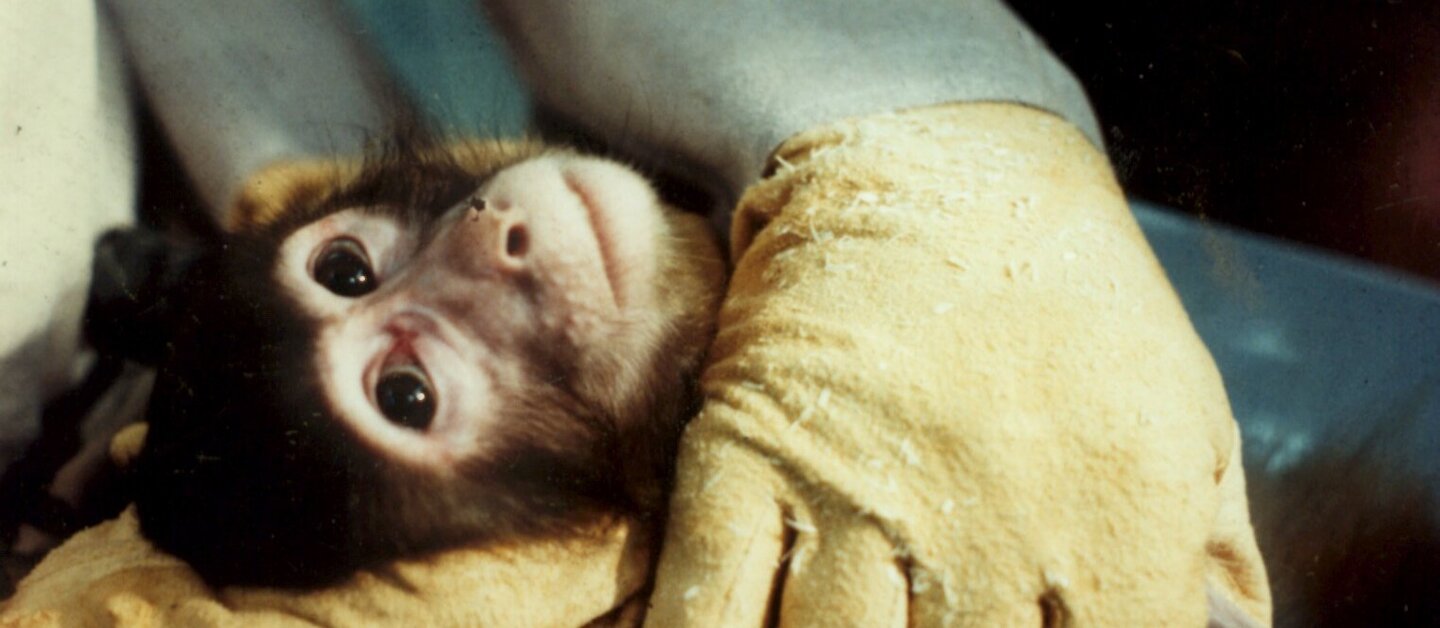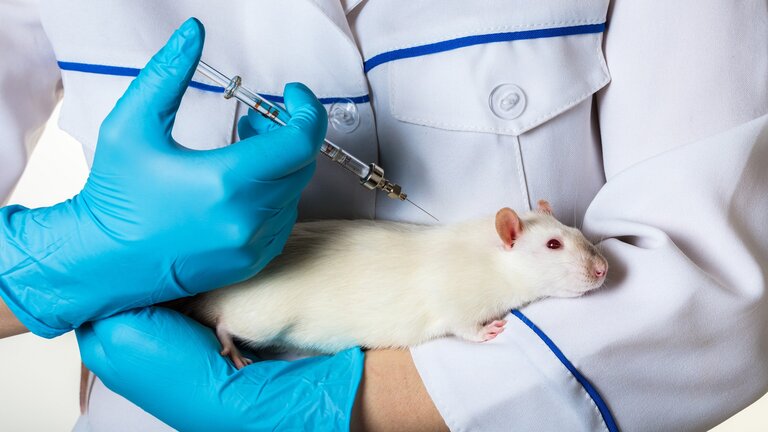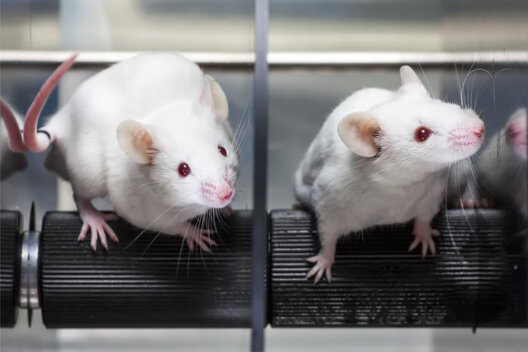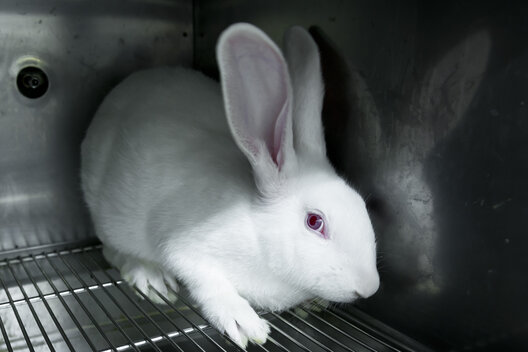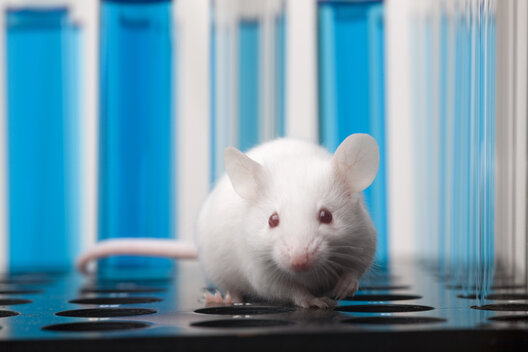Animal testing on monkeys
More than 7,000 highly developed monkeys, our closest relatives in the animal kingdom, suffered and died in animal testing laboratories in the European Union in 2020. In Germany alone, over 2,200 monkeys died in 2022.
Electrodes are implanted in the animals' brains. They are infected with serious diseases, pumped full of substances whose toxicity is to be tested, or killed for the production and quality control of vaccines. These experiments on primates are of very dubious scientific value. On the other hand, the animals are subjected to severe pain and suffering when they are restrained in primate chairs, forced to perform tasks, suffer from the symptoms of an artificially induced disease or have their bodies poisoned. Even where research is already being conducted into non-animal approaches, experiments on monkeys are still being carried out.
In addition to the stresses and strains of the experiments, the origin and husbandry of the animals raises considerable ethical problems. Primates are still being captured from the wild to breed offspring for animal experiments. Experimental monkeys in Europe are often kept in cages that are so small that the animals cannot move around freely without contact with other animals.
Scandals about monkey experiments in the laboratories of the Max Planck Institute for Biological Cybernetics in Tübingen and at the LPT animal testing laboratory near Hamburg clearly show the abuses in everyday animal testing in Germany.
Import of monkeys from Mauritius
Before monkeys are used in animal experiments, they often have a long and painful journey behind them. Almost all of the monkeys used for the first time in Germany were imported - mainly from breeding stations in Asia, but also from Africa, more specifically from Mauritius. Wild monkeys are strictly protected under species protection law. However, Mauritius is one of the few countries where it is permitted to capture monkeys from the wild. Here, the animals are classified as "pests" as they feed on sugar cane.
In their panicked attempts to free themselves from the traps, the monkeys often injure themselves badly. Once they arrive at the island's breeding centers, they have to fulfill one main purpose in overcrowded cages: To produce offspring. The last stop for the wild-caught monkeys or their offspring are experimental laboratories around the world, where they almost always die after the experiments.
The trade in laboratory monkeys is a lucrative business. Mauritius, Cambodia, Thailand and Vietnam are among the world's largest exporters of long-tailed macaques (Macaca fascicularis). The island nation of Mauritius sells thousands of monkeys every year to the animal testing industry in the USA and Europe, particularly France, the UK, Spain and Germany. They then die in toxicity tests for drugs or vaccines and for basic research.
Monkey experiments in Bremen
The University of Bremen has been conducting experiments on the brains of monkeys for the purpose of basic research since 1998. Since the beginning, the experiments have been accompanied by protests and a legal dispute that has now lasted for decades, in which the German Animal Welfare Federation was also significantly involved. The responsible approval authority had already spoken out against the experiments several times, but the Federal Administrative Court in Leipzig nevertheless obtained approval in 2014. As a result, the German Animal Welfare Federation resigned from the advisory commissions under Section 15 of the Animal Welfare Act, as it became clear that there was no legal guarantee that approval authorities would be allowed to independently and comprehensively assess the indispensability of animal experiments and that the work of the Section 15 commissions was therefore invalid (see statement dated April 9, 2014).
In 2021, an proposal was submitted to extend the monkey experiments, which the competent authority had to approve in 2022 by order of the Bremen Administrative Court. In November 2023, the Bremen Senate rejected the continuation.1 The reason given: "The stress on the laboratory animals is not justified by the intended gain in knowledge and is therefore not ethically justifiable."2
This is what the German Animal Welfare Federation demands
Primate experiments must be removed from statutory testing regulations. Experiments on monkeys in basic research must be banned by law.
The use of primates bred abroad must be banned immediately. Instead of supporting breeding centers for experimental primates, more financial resources should be made available for the development and use of animal-free methods.
As long as primates are kept for experimental purposes, the housing conditions must be adapted to the species-specific needs of the monkeys.
Sources
2 Press release from the Senate of the Free Hanseatic City of Bremen "Proposal for continuation of primate experiments rejected" dated 14/11/2023 (accessed on 15/11/2023)

